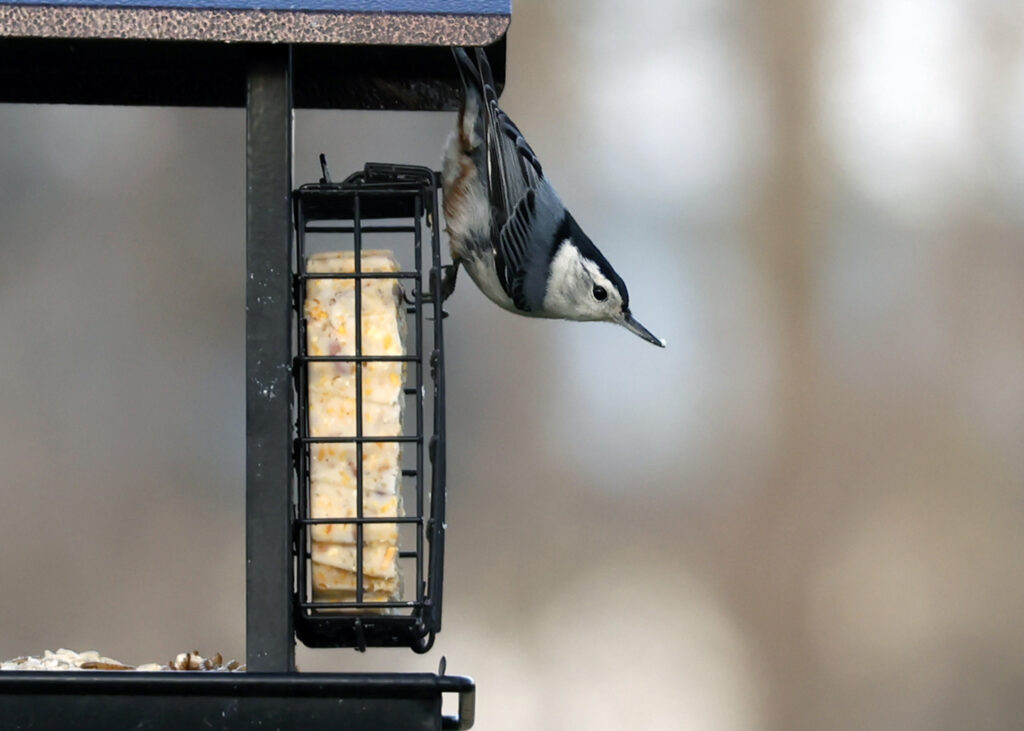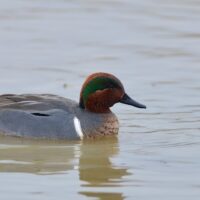Spring has arrived and with the warm weather and longer days, many Kentuckians will begin sprucing up their yards and gardens. Whatever your other spring tidying plans may include, be sure to clean your bird feeders.

As spring migration gets in full spring, feeders around the yard provide a great way to attract and view migrating songbirds. However, it’s important they are cleaned on a regular basis so they don’t spread disease.
“Bird feeders are high contact areas where you have a lot of birds congregating around one shared food source,” said Dr. Christine Casey, wildlife veterinarian for the Kentucky Department of Fish and Wildlife Resources. “If one of the birds visiting a feeder is sick, it has the potential to spread disease to other birds at the feeder.”
To keep birds healthy, Kentucky Fish and Wildlife recommends the following tips:
- Clean feeders every two weeks. Discard old food and debris and wash the feeder with dish soap and water. Thoroughly rinse before soaking the feeder in a solution of one part bleach and nine parts water. Rinse thoroughly and dry completely before refilling.
- Rake up seed hulls and other waste beneath feeders. Moldy or spoiled food can make birds ill.
- Properly store food in a closed container to keep food fresh and prevent pests.
- For birdbaths, clean the bath’s basin every one to two weeks by filling it with a solution of one part bleach and nine parts water. Cover the bath with a trash bag and let it soak for 15-20 minutes. Drain the bleach/water mixture in a safe area. Rinse the bath thoroughly and let it dry in the sun before refilling.
While diseases spread by songbirds pose a limited threat to people, Salmonella, a type of bacteria, can be harmful to both birds and humans. Young, elderly and immunocompromised individuals are at a higher risk for Salmonellosis. When cleaning bird feeders, practice good hygiene: wear disposable gloves; avoid touching your face; and wash hands with soap and warm water for at least 20 seconds after handling feeders and birdbaths.
If sick or dead birds are found at a feeder, Kentucky Fish and Wildlife recommends:
- Taking the feeder down immediately and removing any remaining seed from the feeder. Clean and store the feeder for two weeks. Removing the feeder stops the birds from gathering in common areas.
- When putting feeders back up, place them in a different location, if possible, to avoid contaminated soil. Leftover seed still in the bag should be safe to use. Watch for sick birds. If any are seen, take the feeders down again and clean and store them for another two weeks.
- Follow the same protocols for cleaning and storing birdbaths.
If multiple deceased birds are discovered at feeders, report observations to Kentucky Fish and Wildlife via the online sick or dead bird reporting portal or by calling the agency’s Information Center at 1-800-858-1549, 8 a.m. – 4:30 p.m. (ET) weekdays, excluding holidays.





